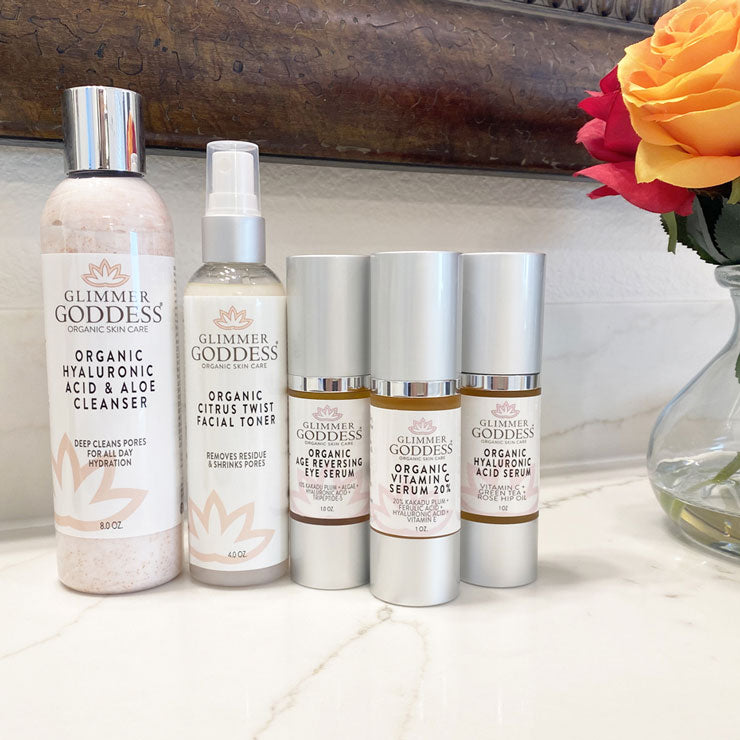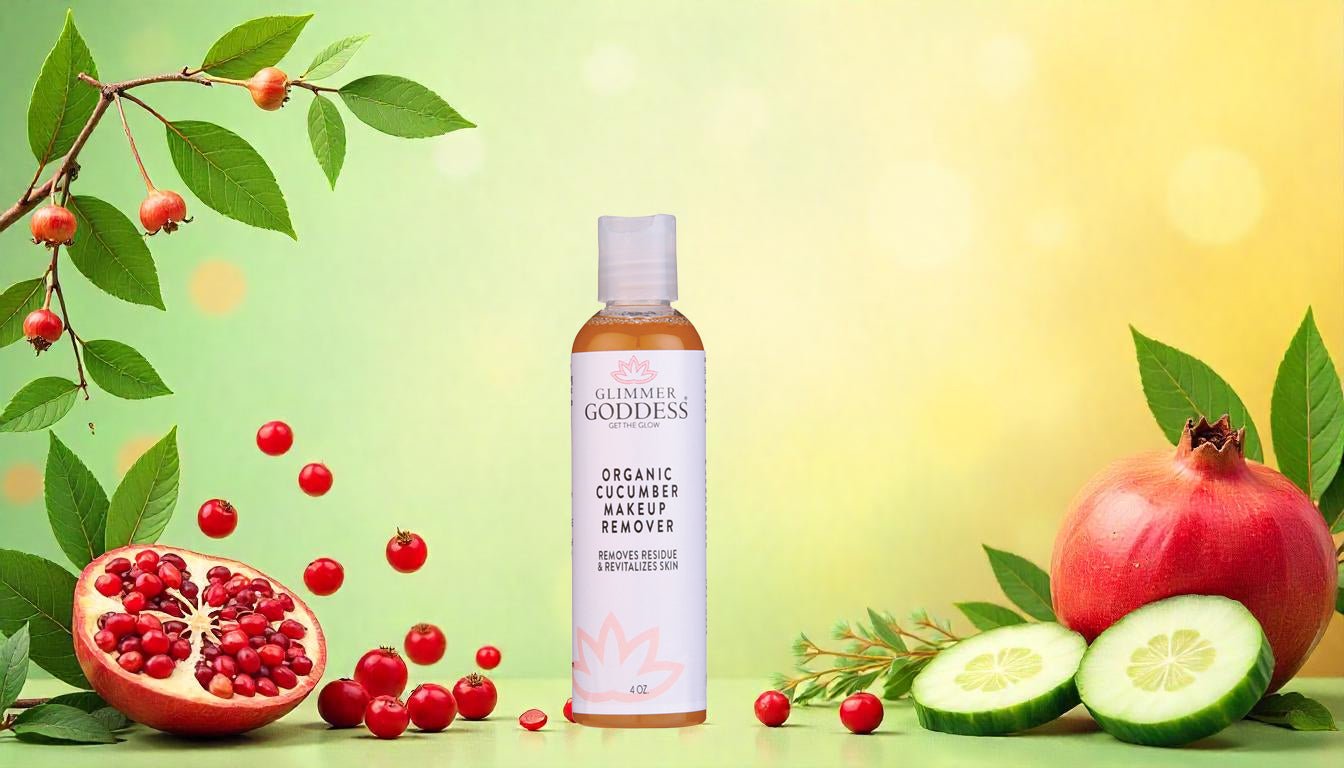
Sun-Kissed Radiance: Nature's Luxury in Our Shimmer Suntan Lotion
Shielding your skin from harmful UV rays is essential year-round. This guide offers essential tips on selecting the right sunscreen, choosing sun-safe clothing, and hydrating properly, ensuring your skin remains healthy and radiant while embracing outdoor activities. Discover how to stay sun-smart and stylish with our expert advice.
Unlocking the Secrets to Radiant, Protected Skin: Your Ultimate Sunscreen Guide
How Do You Choose the Right SPF?
Choosing the right SPF (Sun Protection Factor) for your skin can be a daunting task, but it's a crucial step in maintaining healthy, youthful-looking skin. The SPF number indicates the level of protection the sunscreen provides against UVB rays, which are the primary culprit behind sunburns.
When it comes to SPF, higher is not always better. While an SPF of 30 blocks 97% of UVB rays, an SPF of 50 blocks 98% - a negligible difference for most people. The key is to choose a sunscreen with an SPF of at least 30, and to apply it generously and consistently.
- The SPF number is not the only factor to consider when selecting a sunscreen. It's important to also look for broad-spectrum protection, which means the sunscreen shields against both UVA and UVB rays.
- People with fair skin or a history of skin cancer may benefit from a higher SPF, such as 50 or 60. However, for the average person, an SPF of 30 to 50 is generally sufficient.
- It's crucial to reapply sunscreen every 2 hours, or more frequently if swimming or sweating, to maintain optimal protection.
What Ingredients Should You Look For?
When it comes to sunscreen ingredients, it's important to understand the difference between chemical and physical sunscreens. Chemical sunscreens work by absorbing UV rays, while physical sunscreens (also known as mineral sunscreens) reflect and scatter the rays.
Regardless of the type of sunscreen, the most important ingredients to look for are zinc oxide and/or titanium dioxide. These mineral-based compounds provide broad-spectrum protection and are less likely to cause skin irritation or sensitivity.
- Other beneficial ingredients to consider include antioxidants like vitamin C, vitamin E, and green tea, which can help neutralize free radicals and further protect the skin.
- Avoid sunscreens with oxybenzone, a common chemical ingredient that has been linked to hormone disruption and environmental concerns.
- If you have sensitive skin, look for fragrance-free and hypoallergenic formulas to minimize the risk of irritation.
Can You Use Sunscreen on Sensitive Skin?
Sensitive skin can be a challenge when it comes to finding the right sunscreen, as many formulas can cause redness, stinging, or breakouts. However, with the right approach, even those with sensitive skin can enjoy the benefits of sun protection.
The key is to choose a sunscreen specifically formulated for sensitive skin, which typically contains mineral-based active ingredients like zinc oxide and titanium dioxide. These physical sunscreens are less likely to cause irritation than chemical sunscreens.
- Look for sunscreens that are fragrance-free, hypoallergenic, and non-comedogenic (won't clog pores). Avoid sunscreens with added fragrances, alcohols, and preservatives, as these can further aggravate sensitive skin.
- Start with a small patch test before applying the sunscreen to your entire face to ensure it doesn't cause any adverse reactions.
- If you experience any stinging, redness, or irritation, discontinue use and try a different formula. It may take some trial and error to find the perfect sunscreen for your sensitive skin.
What Is the Difference Between Chemical and Physical Sunscreens?
When it comes to sunscreens, there are two main types: chemical and physical. Understanding the differences between these two categories can help you choose the right formula for your skin type and needs.
Chemical sunscreens work by absorbing UV rays and converting them into heat, which is then released from the skin. These formulas typically contain active ingredients like oxybenzone, avobenzone, and octinoxate.
- Chemical sunscreens are generally lighter and easier to blend into the skin, making them a popular choice for everyday use.
- However, some people may experience skin irritation or sensitivity with chemical sunscreens, especially those with sensitive skin or a history of skin conditions.
Physical (or mineral) sunscreens, on the other hand, work by reflecting and scattering UV rays away from the skin. The active ingredients in physical sunscreens are typically zinc oxide and/or titanium dioxide.
- Physical sunscreens are less likely to cause irritation and are often recommended for those with sensitive skin or conditions like rosacea or eczema.
- One potential downside of physical sunscreens is that they can leave a white, chalky cast on the skin, depending on the formula. However, newer formulations have been designed to blend more seamlessly.
Ultimately, the choice between chemical and physical sunscreens comes down to personal preference, skin type, and any specific concerns or sensitivities you may have.
How Often Should You Reapply Sunscreen?
Proper sunscreen application is crucial for ensuring effective sun protection, and reapplying at the right intervals is key to maintaining that protection throughout the day.
As a general rule, sunscreen should be reapplied every 2 hours, or more frequently if swimming, sweating, or toweling off. This is because sunscreen can wear off or become less effective over time, leaving your skin vulnerable to UV damage.
- When applying sunscreen, be sure to use the recommended amount, which is about 1 ounce (a shot glass full) for the entire body. Skimping on the amount can significantly reduce the level of protection.
- Don't forget to apply sunscreen to often-overlooked areas, such as the ears, lips, hands, and around the eyes.
- If you're using a combination of sunscreen and other sun-protective measures, like hats and clothing, be sure to reapply the sunscreen accordingly.
Choosing the right sunscreen and applying it correctly can make all the difference in shielding your skin from the harmful effects of UV rays. By understanding the key factors to consider, such as SPF, ingredients, and reapplication, you can enjoy the outdoors with confidence, knowing your skin is well-protected and radiant.
Sun-Smart Style: Staying Protected in Stylish Comfort
What Types of Fabrics Offer UV Protection?
When it comes to sun protection, the fabric you choose for your clothing can make a big difference. Not all materials are created equal when it comes to blocking harmful ultraviolet rays.
Certain fabrics are simply better at shielding your skin from the sun's damaging effects.
- Tightly-woven, densely-constructed fabrics like cotton, polyester, and linen tend to provide better UV protection than loosely-woven or lightweight materials.
- Fabrics with a higher thread count and a smooth, non-shiny surface often have a higher UPF (Ultraviolet Protection Factor) rating, meaning they block more of the sun's rays.
- Synthetic fabrics like nylon and spandex generally offer better UV protection than natural fibers like silk or rayon.
- Moisture-wicking, quick-drying fabrics can also be beneficial, as they help keep you cooler and drier in the sun.
- Some clothing is even specially-treated with UV-absorbing chemicals to boost its sun-blocking capabilities.
Doing a little research on fabric types and ratings can help you make informed choices for your sun-safe wardrobe.
How Should You Choose the Right Accessories?
Savvy sun protection doesn't stop at your clothing - the right accessories can be a crucial part of your sun-smart style.
Hats, sunglasses, and other add-ons can take your level of UV safeguarding to the next level.
- Wide-brimmed hats, with brims of at least 3 inches, help shield your face, neck, and ears from direct sun exposure.
- Wraparound or large-lens sunglasses that block both UVA and UVB rays are essential for protecting your eyes.
- Scarves, shawls, and lightweight cover-ups can provide extra coverage for your chest, shoulders, and arms when needed.
- Don't forget about sun-protective fabrics for your accessories too - look for hats and gloves made of tightly-woven, high-UPF materials.
- Accessories with built-in UPF ratings make it easy to identify which ones offer the best sun protection.
Accessorizing smartly can elevate your sun-safe style and keep you covered from head to toe.
Are There Specific Colors That Provide Better Protection?
The color of your clothing can also impact its ability to shield you from the sun's rays.
Darker, richer hues tend to offer better UV protection than lighter, more vibrant colors.
- Deeper shades of blue, green, and red generally have a higher UPF rating than pastels or neon tones.
- Black clothing is an excellent choice for blocking UV light, as the dark pigment absorbs more of the sun's energy.
- Closely-spaced, intricate patterns can also help enhance a fabric's sun-protective properties.
- Opt for opaque fabrics over sheer or see-through materials, as the more layers of fabric, the better the UV blockage.
- Keep in mind that the dye used to color the fabric can impact its sun-blocking abilities as well.
Strategically selecting sun-smart colors and patterns can take your UV protection to new heights without sacrificing your personal style.
What Clothing Styles Are Best for Covering Up?
When it comes to sun protection, the right clothing coverage can make all the difference.
Certain garment styles and designs are more effective at keeping your skin shielded from harmful UV rays.
- Long-sleeved shirts, pants, and dresses offer more comprehensive coverage than tanks, shorts, or skirts.
- Loose, flowing silhouettes that drape over the body tend to be better at blocking sun exposure than tight, form-fitting pieces.
- Clothing with high necklines, long hemlines, and full sleeves provides optimal protection for your neck, legs, and arms.
- Look for designs with built-in UPF ratings, which indicate the fabric's level of UV blockage.
- Don't forget about the importance of coverage for sensitive areas like the back of the neck, shoulders, and scalp.
Prioritizing smart, sun-safe silhouettes can help you stay protected without sacrificing your personal flair.
How Can Kids Stay Safe from Sun Exposure?
Keeping little ones safe from the sun's harmful rays requires a thoughtful, multi-faceted approach.
Kids need even more diligent sun protection than adults, given their delicate skin and increased time spent outdoors.
- Dress children in lightweight, moisture-wicking clothing with a high UPF rating, covering as much skin as possible.
- Wide-brimmed hats, wraparound sunglasses, and sun-protective accessories are essential for shielding vulnerable areas.
- Apply a generous amount of broad-spectrum, water-resistant sunscreen with an SPF of 30 or higher to all exposed skin.
- Seek shady spots and avoid direct sun exposure during the peak UV hours of 10 AM to 4 PM whenever possible.
- Teach kids the importance of sun safety and make it a fun, interactive learning experience.
Keeping little ones safe from the sun's rays takes diligence, but it's a worthwhile investment in their long-term health and wellbeing.
By prioritizing smart, sun-smart style choices, you can stay protected and look fabulous while embracing all the joys of the great outdoors. A few simple strategies can go a long way in safeguarding your skin - and your confidence - from the sun's damaging effects.
Staying Hydrated in the Sun: A Comprehensive Guide
How Does Sun Exposure Affect Your Hydration Levels?
Spending time in the sun can have a significant impact on your body's hydration levels. The sun's rays can cause your body to lose more fluids through sweat, leading to dehydration if you don't replenish those lost fluids.
The sun's heat and UV radiation can trigger your body's natural cooling mechanisms, causing you to sweat more to regulate your temperature. This increased sweating leads to a loss of water and electrolytes, which can quickly deplete your hydration levels if you don't replace them.
- Sweating helps your body cool down, but it also means you're losing important fluids and minerals that need to be replenished.
- The hotter and more intense the sun's rays, the more your body will sweat to try to maintain a healthy temperature.
- Prolonged sun exposure can lead to a higher risk of dehydration, especially if you're not consciously drinking enough water or other hydrating beverages.
- Factors like your skin type, activity level, and the climate you're in can all influence how much you sweat and how quickly you become dehydrated in the sun.
- It's important to be mindful of your hydration needs and adjust your water intake accordingly when spending time outdoors in the heat.
Staying properly hydrated in the sun is essential for maintaining your overall health and well-being. By understanding how sun exposure affects your body's fluid balance, you can better prepare and take the necessary steps to keep yourself hydrated.
What Are the Best Beverages for Staying Hydrated?
When it comes to staying hydrated in the sun, not all beverages are created equal. Some are better than others at replenishing the fluids and electrolytes your body loses through sweating.
Water is the most essential and effective beverage for hydration, as it directly replaces the fluids your body is losing. However, there are also other great options that can help you stay hydrated in the sun.
- Coconut water is packed with electrolytes like potassium, making it an excellent choice for rehydrating after sweating.
- Sports drinks can help replenish electrolytes like sodium and potassium that are lost through sweat.
- Herbal teas and fruit-infused waters provide hydration along with additional nutrients and antioxidants.
- Milk and milk-based drinks like smoothies offer a combination of fluids, protein, and other beneficial nutrients.
- Avoiding sugary, caffeinated, or alcoholic beverages is generally recommended, as they can actually have a dehydrating effect on the body.
- The best hydrating beverages are those that are cool, refreshing, and easily accessible when you're spending time in the sun.
Staying properly hydrated is crucial for your health and well-being, especially when you're exposed to the sun's harsh rays. By choosing the right beverages, you can ensure your body has the fluids and electrolytes it needs to stay balanced and energized.
What Foods Can Help Keep You Hydrated?
While beverages are the primary source of hydration, certain foods can also contribute to maintaining your body's fluid balance, particularly when you're spending time in the sun.
Incorporating hydration-rich foods into your diet can be a great way to supplement your fluid intake and stay properly hydrated.
- Fruits like watermelon, cantaloupe, and oranges are packed with water and can help you stay hydrated.
- Vegetables such as cucumbers, tomatoes, and leafy greens also have high water content and can contribute to your overall hydration.
- Soups and stews, especially those made with broth, can provide both fluids and electrolytes to replenish what you've lost through sweating.
- Yogurt, cottage cheese, and other dairy products can offer a combination of fluids, protein, and other nutrients that support hydration.
- Eating foods with high water content can be especially beneficial if you're struggling to drink enough water, as they can help you meet your hydration needs in a more subtle way.
- Incorporating a variety of hydration-rich foods into your diet can also provide additional nutrients and health benefits beyond just maintaining fluid balance.
Staying hydrated in the sun is about more than just drinking water. By selecting the right foods that are high in water content and other hydrating nutrients, you can help your body maintain optimal fluid levels and stay energized and refreshed, even on the hottest of days.
How Can You Tell If You're Dehydrated in the Sun?
Recognizing the signs of dehydration is crucial when spending time in the sun, as it can quickly lead to more serious health issues if left unchecked.
There are several key indicators that can signal you're becoming dehydrated, and it's important to be mindful of these symptoms so you can take action to rehydrate.
- Dry mouth, lips, and tongue are often one of the first signs of dehydration, as your body prioritizes directing fluids to vital organs.
- Headaches, dizziness, or feeling lightheaded can be a result of decreased blood volume and blood pressure from fluid loss.
- Decreased urine output or urine that is darker in color can indicate that your body is conserving water.
- Fatigue, muscle cramps, and a general feeling of sluggishness can also be signs that you're not properly hydrated.
- Pay attention to how your body is feeling, and don't wait until you're severely dehydrated to take action. Addressing the early signs can help you prevent more serious complications.
- Factors like your age, underlying health conditions, and level of physical activity can all influence how quickly you become dehydrated in the sun, so it's important to be vigilant.
Staying hydrated is crucial for your overall health and well-being, especially when you're exposed to the sun's harsh rays. By recognizing the early warning signs of dehydration, you can take proactive steps to replenish your fluid levels and avoid potentially dangerous consequences.
Why Is Hydration Key to Skin Health?
Maintaining proper hydration is not only important for your overall bodily functions, but it also plays a crucial role in the health and appearance of your skin, particularly when spending time in the sun.
Adequate hydration helps keep your skin cells plump and functioning optimally, which can have a significant impact on its appearance and resilience.
- Dehydration can cause your skin to become dry, tight, and more prone to irritation, leading to an aged or weathered appearance.
- Proper hydration helps maintain the skin's natural barrier function, protecting it from environmental stressors like UV radiation and pollutants.
- Staying hydrated can also help reduce the visibility of fine lines and wrinkles, as well as minimize the appearance of blemishes and uneven skin tone.
- Hydration supports the skin's natural healing and rejuvenation processes, which is especially important when it's exposed to the sun's damaging rays.
- Drinking enough fluids and incorporating hydration-rich foods and topical products can help combat the drying and aging effects of sun exposure on the skin.
- Protecting your skin with sunscreen and seeking shade during the hottest parts of the day can also help minimize water loss and keep it healthy and radiant.
Keeping your skin hydrated is not only important for its appearance, but also for its overall health and function. By prioritizing hydration, especially when spending time in the sun, you can help maintain the skin's natural barrier, reduce the visible signs of aging, and support its ability to repair and rejuvenate itself.
Staying properly hydrated is crucial for maintaining your overall health and well-being, particularly when you're exposed to the sun's harsh rays. By understanding the importance of hydration, choosing the right beverages and foods, and recognizing the signs of dehydration, you can ensure your body has the fluids and electrolytes it needs to stay balanced, energized, and resilient, both on the inside and out.
Sun-Kissed Radiance: Discover Nature's Luxury in Our Shimmer Suntan and Organic Skincare Line
Goddess Glow Shimmer Suntan Lotion SPF 40 – Reef-Safe Radiance
Experience radiant protection with our shimmer suntan lotion. Elevate your sun care routine with this luxurious formula that offers SPF 40 broad-spectrum protection while imparting a luminous glow to your skin.
Embrace the goddess within with our Goddess Glow Shimmer Suntan Lotion. Infused with natural ingredients, this lightweight and non-greasy lotion is designed to nourish and shield your skin from the sun's harmful rays.
- SPF 40 Broad-Spectrum Protection: Our sunscreen formula shields against both UVA and UVB rays, ensuring comprehensive sun defense.
- Natural Shimmer Effect: Enriched with shimmering mica minerals, this lotion enhances your skin's natural radiance for a sun-kissed glow.
- Reef-Safe Formula: Free from oxybenzone and octinoxate, our formula is gentle on both your skin and the delicate ocean ecosystem.
- Hydrating Ingredients: Nourishing plant-based oils and extracts deeply moisturize and condition the skin, leaving it silky-smooth.
- Suitable for All Skin Types: Whether you have dry, oily, or sensitive skin, this sunscreen is formulated to be gentle and effective for everyone.
Organic Reef-Safe Sunscreen - Broad Spectrum SPF 40
Introducing our Glimmer Goddess Organic Reef-Safe Sunscreen, a superior choice for your skin and the environment. Crafted with certified organic ingredients, this formula provides maximum sun protection while deeply nourishing your skin.
Embrace nature's power to shield and nourish your skin with our Organic Reef-Safe Sunscreen. Formulated with un-coated non-nano Zinc Oxide and infused with rejuvenating plant oils, this sunscreen offers comprehensive sun defense while promoting a healthy, radiant complexion.
- Certified Organic Ingredients: Our sunscreen is made with the finest organic plant-based ingredients, ensuring a gentle yet effective formula.
- Non-Nano Zinc Oxide: The uncoated Zinc Oxide in our sunscreen provides a physical barrier against UVA and UVB rays without the use of harmful chemicals.
- Nourishing Plant Oils: Enriched with red raspberry seed oil and pomegranate seed oil, this sunscreen deeply moisturizes and conditions the skin.
- Lightweight and Quick-Drying: The fast-absorbing formula leaves no greasy residue, making it perfect for all-day wear and active lifestyles.
- Waterproof and Sweat-Resistant: Enjoy up to 40 minutes of water resistance, ensuring your sun protection lasts through your outdoor adventures.
Triple Action Daily Organic Face Moisturizer
Discover our Triple Action Daily Organic Face Cream SPF 30. This organic facial moisturizer combats wrinkles and shields your skin from the sun. With powerful carrot seed, pomegranate, and raspberry oils, this lightweight cream provides intense hydration and stimulates collagen production.
Embrace the power of nature's finest ingredients with our Triple Action Daily Organic Face Moisturizer. Formulated with a blend of certified organic oils and infused with Reef-Safe SPF 30 protection, this nourishing face cream helps to diminish the appearance of fine lines and wrinkles while shielding your skin from harmful UV rays.
- Reef-Safe SPF 30 Protection: Enjoy broad-spectrum sun protection that is gentle on the delicate marine ecosystem.
- Carrot Seed, Pomegranate, and Raspberry Oils: These potent plant-based oils work together to deeply hydrate, stimulate collagen production, and promote a youthful, radiant complexion.
- Lightweight and Easily Absorbed: The fast-absorbing formula leaves no greasy residue, making it perfect for daily use.
- Smooth, Firm, and Radiant Skin: Unlock your skin's full potential with this nourishing and protective face cream.
- Natural and Chemical-Free: This moisturizer is free from harsh chemicals and fillers, offering a pure and gentle formula for your skin.
Elevate your sun care and skincare routines with our Glimmer Goddess collection. Indulge in the luxurious blend of natural ingredients and comprehensive sun protection, and let your radiant beauty shine through. Experience the power of nature's finest treasures and embrace a sun-kissed, youthful glow that's good for you and the planet.
Q&A
How do I choose the right SPF for my skin?
Select a sunscreen with at least SPF 30 for effective protection, and opt for higher SPF levels if you have fair skin or previous skin cancer history. Always apply generously and reapply every 2 hours for optimal results.
What ingredients should I look for in sunscreen?
Look for broad-spectrum protection with zinc oxide or titanium dioxide for mineral sunscreens, as they reflect UV rays. Antioxidants like vitamins C and E can also provide added benefits. Avoid oxybenzone due to potential hormonal effects.
Can sensitive skin use sunscreen safely?
Yes, opt for fragrance-free, hypoallergenic, and mineral-based sunscreens to minimize irritation. Test a small patch on your skin before full application to ensure compatibility.
What is the difference between chemical and physical sunscreens?
Chemical sunscreens absorb UV rays and convert them to heat, while physical sunscreens reflect UV rays using mineral ingredients. Personal preference and skin sensitivity will guide your choice.
How often should I reapply sunscreen?
Reapply sunscreen every 2 hours or more frequently if swimming or sweating. Ensure a sufficient amount is used to maintain protection, and don’t forget to cover all exposed skin areas.
What kinds of clothing provide UV protection?
Choose tightly woven fabrics like cotton or synthetic materials with high UPF ratings. Darker colors typically offer better UV protection, and loose-fitting styles are more effective than tight clothing.
What foods help with hydration in the sun?
Consume fruits like watermelon and cucumbers, which have high water content. Soups and dairy products can also help maintain hydration levels while enjoying the outdoors.
How can I tell if I'm dehydrated while in the sun?
Look for signs like dry mouth, headaches, dizziness, or dark urine. Early recognition of dehydration is crucial to prevent severe health issues.
Why is hydration important for skin health in the sun?
Proper hydration keeps skin cells plump, protects against UV damage, reduces visible signs of aging, and supports the healing of sun-exposed skin.
Maintaining adequate sun protection is crucial to your skin's health in every season. By selecting the right sunscreen, dressing wisely, and staying hydrated, you can enjoy the outdoors safely and confidently. Embrace these sun protection strategies to keep your skin glowing and youthful.











